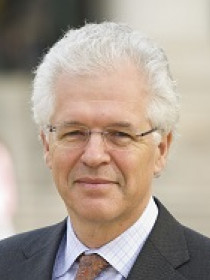
Richard K. Lester
Connect with Richard
About Richard
Lester’s research focuses on local, national, and international systems of innovation. He is also active in research and teaching on nuclear technology innovation, management, and control. As head of MIT’s Nuclear Science and Engineering Department, he works with his colleagues to advance the Department’s role at the forefront of education and research on energy and non-energy applications of nuclear science and technology. As the founding director of the Industrial Performance Center (IPC), he has led several major studies of national and regional competitiveness and innovation performance commissioned by governments and industrial groups around the world including, most recently, the Energy Innovation Project, a study of strategies for upgrading the U.S. energy innovation system. Previously, in the IPC’s Local Innovation Systems Project, he directed an international network of researchers studying the technological transformation of industries in regional economies and the role of universities in that process.
Contributions
How America Can Build an Innovative New Energy System
In the News
Publications
Presents a comprehensive techno-economic evaluation of two pathways: one reliant on wind, solar, and batteries, and another also including firm low-carbon options (nuclear, bioenergy, and natural gas with carbon capture and sequestration).